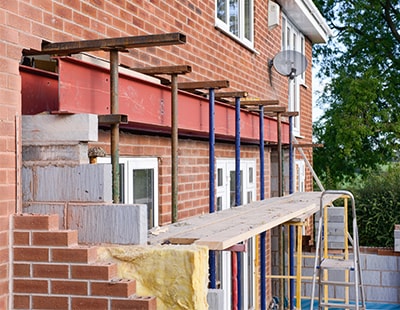With reports continuing to focus on a slowing property market and an understanding that not enough properties are being marketed for sale, it’s understandable that an estate agent should celebrate receiving an exciting new instruction of what appears to be a highly marketable property.
However, for those who have an almost unhealthy obsession with tracking sales via the likes of Rightmove, it is interesting to witness the frequency with which a property marked as SSTC then reappears as a new instruction having experienced the sale fall through.
This is nothing new. Whatever the external economic climate, the sale of a property doesn’t always go to plan. Personal circumstances change; finances don’t add up; a purchaser simply changes their mind.
However, as a building surveyor I get to see things with an insider’s view and I believe there’s a very serious lesson to be learnt by some estate agents if they’re committed to securing a quality purchaser for their client and pocketing that all-important commission at the end of it all.
Simply, that is to gen up on building regulation requirements. There has been an increasing propensity in recent years to improve rather than move. This means more and more properties are being sold (when a move does eventually become the best option), having been extended with a loft conversion or the addition of a conservatory.
Whilst it is easy to assume that the work will have been carried out by a reputable builder who will have been responsible for all the necessary checks, don’t be fooled by appearances.
It is a common misconception, for example, that conservatories don’t require building regulation approval. Simply, if there are no external grade doors between the house and conservatory or if the heating is connected to the main house system, approval will be required.
I recently surveyed a house where the remedial work to rectify a situation of this sort took six months and incurred costs of £4500. The brutal truth is that had the work been completed satisfactorily when the conservatory was built eighteen months previously, it would have cost half that!
Loft conversions – one of the most common ways to extend a family home – are also a regular source of difficulty. Often the structural aspects of the build are done well, but essential fire safety elements are lacking and the cost of retrofitting these can be significant.
Not only that but gaining consent on retrofitted work can be complex and require intrusive and disruptive examination of the work by the building inspector who will be extra vigilant given the work wasn’t completed to the required standard in the first instance.
The simplest thing for a homeowner is to ensure the work is up to scratch to start with, and as an agent you should ensure the necessary documentation is in place to evidence this. Remember: building regulation application is NOT building regulation approval!
A vendor is likely to choose a selling agent based on local reputation and track record; commission and tie-in periods; personal recommendation; and the quality of their marketing efforts.
This is all understandable, but in a market where no-one wins until completion takes place, those vendors will also demand an agent who gets them to that stage with as little complication as possible.
If that means delaying actively marketing a property whilst necessary work is carried out to get it up to the required standard and in doing so making it more saleable (not just more marketable), then asking the simple question ‘and this work was carried out with demonstrable Building Regs approval, was it?’ would be well worth adding in to that initial conversation – you can’t say you haven’t been warned!
*Steven Way MRICS is Practice Principle at Collier Stevens
























Join the conversation
Jump to latest comment and add your reply
I have experienced this sort of thing several times over the years as a buyer.You point out the problem and the agent simply says no comment, you will have to ask a surveyor. If the agent agrees with you they know you will ask for a lower price or if they refuse to comment you might just be daft enough to go ahead and get trapped to the point where you have to complete and take whatever comes.
Caveat emptor.
It's absolutely infuriating and can be a huge time waster if a lot of travel is involved.
Please login to comment